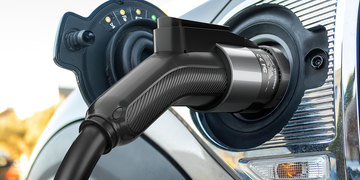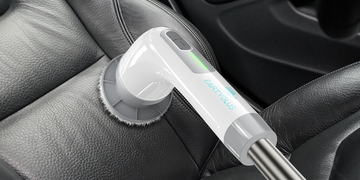Are EV Chargers expensive to install? You'll have many factors to consider, but chief among them: how much will it cost to have one installed? The national average cost for EV charging station installation is between $1,000 and $2,500.
Telgeoot level 2 charger is very easy to install. The Telgeoot EV Charger stations has been equipped with multiple safety protections, Over Voltage protection, Overload protection, Short Circuit protection, Ground protection, Earth Leakage protection.
The cost of installing electric vehicle (EV) chargers can vary depending on several factors, including the type of charger, the location, existing electrical infrastructure, and any necessary upgrades. Here's a breakdown of potential costs associated with EV charger installation:
Type of Charger: The cost can vary depending on whether you're installing a Level 1, Level 2, or DC fast charger. Level 1 chargers, which typically use a standard household outlet, are the least expensive to install since they require minimal electrical work. Level 2 chargers, which provide faster charging speeds and require a dedicated circuit, may involve additional installation costs. DC fast chargers, which offer rapid charging capabilities and require substantial electrical infrastructure, are the most expensive to install.
Electrical Infrastructure: The availability and capacity of existing electrical infrastructure at the installation site can impact installation costs. Installing a new circuit or upgrading electrical panels to support higher charging capacities can increase the overall cost of installation.
Permitting and Regulatory Compliance: Obtaining permits and ensuring compliance with local building codes and regulations can add to the cost of installation. Permitting requirements vary by jurisdiction and may involve fees and additional paperwork.
Site Preparation: Site preparation, including trenching, concrete work, and landscaping, may be necessary depending on the installation location. The extent of site preparation required can influence installation costs.
Network Connectivity and Equipment: Some charging stations may require internet connectivity for remote monitoring and management, which can add to the installation costs. Additionally, the cost of the charging equipment itself varies depending on the manufacturer, features, and charging capacity.
Labor Costs: Labor costs for installation, including electrical work and any necessary construction, can vary based on local labor rates and the complexity of the installation.
Overall, while the upfront cost of installing EV chargers can vary, it's essential to consider the long-term benefits, including potential cost savings on fuel and maintenance, as well as the environmental advantages of electric vehicles. Additionally, various incentives, rebates, and tax credits may be available to offset some of the installation costs, making EV charger installation more affordable for businesses, homeowners, and municipalities looking to support electric mobility.

Telgeoot Level 2 Charger Installation Method
Installing a Telgeoot Level 2 EV charger follows a general procedure similar to other Level 2 charger installations. Here's a step-by-step guide:
Choose the Location: Select a suitable location for the charger installation. It should be close to the electrical panel but also convenient for accessing and charging your vehicle.
Check Electrical Capacity: Determine if your electrical panel has sufficient capacity to support the charger. Level 2 chargers typically require a dedicated 240-volt circuit with adequate amperage capacity. If necessary, consult with a qualified electrician to assess and upgrade your electrical system.
Gather Materials and Tools: Collect all the necessary materials and tools for the installation, including the Telgeoot Level 2 charger unit, mounting hardware, conduit, wiring, circuit breaker, and appropriate electrical connectors.
Mounting the Charger: Follow the manufacturer's instructions to mount the Telgeoot Level 2 charger unit securely on the wall or mounting surface. Ensure that it is positioned at the desired height and location for easy access and efficient charging.
Run Electrical Wiring: Install conduit and run electrical wiring from the electrical panel to the location of the charger unit. Use appropriate wiring size and type according to local electrical codes and the specifications provided by Telgeoot.
Connect Wiring to Charger: Connect the electrical wiring to the terminals on the Telgeoot Level 2 charger unit according to the manufacturer's instructions. Ensure that all connections are secure and properly insulated.
Install Circuit Breaker: Install a dedicated circuit breaker in the electrical panel for the charger circuit. The amperage rating of the circuit breaker should match the requirements of the charger unit.
Grounding and Bonding: Ensure proper grounding and bonding of the charger unitand electrical components according to local electrical codes and manufacturer guidelines.
Test the Installation: Once the installation is complete, perform a thorough inspection of the wiring, connections, and mounting to ensure everything is installed correctly and meets safety standards. Test the charger unit to verify that it powers up and functions properly.
Finalize Setup: Complete any additional setup steps required by the Telgeoot Level 2 charger unit, such as configuring charging settings or connecting to a network for monitoring and management.
Safety Certification and Inspection: Consider having the installation inspected by a qualified electrician or building inspector to ensure compliance with local regulations and safety standards. Obtain any necessary permits or certifications required for the installation.
By following these steps and adhering to manufacturer instructions and local electrical codes, you can successfully install a Telgeoot Level 2 EV charger to provide efficient and reliable charging for your electric vehicle. If you're unsure about any aspect of the installation process, it's always best to consult with a licensed electrician for assistance.





